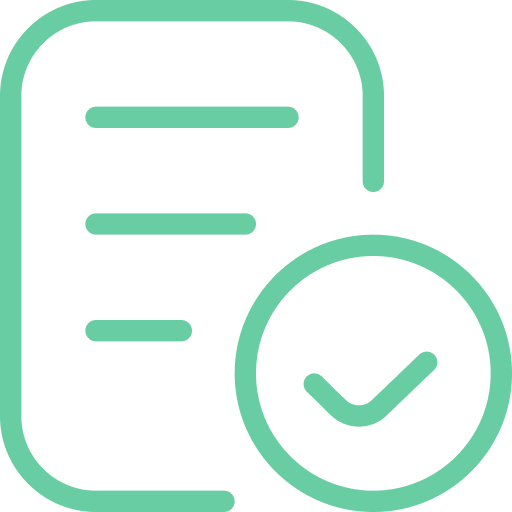
Talos Fellowship
The Talos Fellowship is our flagship programme aimed at launching and accelerating European policy careers focused on artificial intelligence.
At the core of our programme is a focus on ensuring the safe and responsible deployment of advanced artificial intelligence and related technologies.
The Talos Fellowship has three components
Explore the intricacies of tech policy during our 8 week AI Policy Fundamentals Programme.
See here for the curriculum.
Online reading group
Engage in a 7 day policymaking summit in Brussels, with prominent guest speakers, workshops, and networking events.
Brussels policymaking summit
Secure a paid 4-6 month placement at a respected think tank.
See here for more about the placement matching process.
Paid placement (optional)
Online Reading Group
Our Fellowship starts with AI Policy Fundamentals, a deep-dive into the most important considerations in European AI governance today.
You’ll complete weekly readings and hear from guest speakers with subject matter expertise.
You’ll also complete a Policy Brief on a topic of your choice to be published at the end of the programme.
The full curriculum can be found here.
-
Expert predictions for advanced artificial intelligence have shortened from decades to potentially within this decade, while the scientific community is grappling with unprecedented risks that could emerge from increasingly capable AI systems.
This week we are exploring how advanced AI capabilities are projected to evolve through continued scaling, what systemic risks these developments pose to society, and what mitigation strategies are available to policymakers.
Sample reading
Unresolved debates about the future of AI - by Helen Toner (2025) -
This week we will explore the evolving landscape of AI regulation across major jurisdictions, focusing on how countries are balancing innovation imperatives with safety concerns through different regulatory philosophies.
We'll study the spectrum from principles-based to rules-based approaches, and analyse the differences in approach between the EU, US and China.
Sample reading
From Principles to Rules: A Regulatory Approach for Frontier AI by Schuett et al. (2024) -
To understand AI governance in Europe, we need to get to know the broader digital regulatory ecosystem that preceded and shaped it.
This week steps back from AI-specific policies to explore Europe's comprehensive digital governance strategy, including the Digital Services Act (DSA) and Digital Markets Act (DMA).
Sample reading
Building CERN for AI: An institutional blueprint by Centre for Future Generations (2025). -
While the EU has established comprehensive AI governance through the AI Act, it now confronts the harder task of building competitive AI infrastructure and industrial capacity.
This week examines Europe's strategic response through the AI Continent Action Plan, exploring how the EU aims to achieve technological sovereignty while maintaining its distinctive approach of trustworthy, human-centric AI aligned with democratic values.
Sample reading
The AI Continent Action Plan | Shaping Europe’s digital future by European Commission (2025) -
AI has become a key battleground in global competition between major powers.
We'll analyse how AI governance decisions are now increasingly driven by national security concerns, and explore whether export controls and technology restrictions are effective tools for managing both AI risks and international competition.
Sample reading
The EU's AI Power Play: Between Deregulation and Innovation by Allen & Goldston Carnegie Endowment for International Peace (2025) -
AI governance extends far beyond national policy-making. It involves a complex ecosystem of international organisations, standard-setting bodies, civil society groups, and corporate actors who shape how AI is developed and deployed globally.
This week we will explore who has influence beyond national governments.
Sample reading
What should be internationalised in AI governance? by Dennis et al. (2024) -
As AI technologies continue to advance, their integration into the global economy is expected to have far-reaching consequences.
This week examines the economic impact of AI, including the potential for rapid economic growth, changes in labour markets, and the challenges posed by economic concentration.
Sample reading
Is AI already shaking up the labor market? — Harvard Gazette by Deming et al. (2025)
Brussels Policymaking Summit
After completing the AI Policy Fundamentals, you’ll join a one-week policymaking summit in Brussels.
The Brussels Summit will include:
Expert guest speakers discussing policy design, communications, and implementation
Q&As and networking events with experts at the cutting edge of AI governance
Practical role playing workshops
Paid Placement
Many fellows go on to complete a paid 4-6 month placement at a leading AI governance organisation.
Placement organisations include:
The Future Society
OECD.AI
Centre for Future Generations
Centre for European Policy Studies

Applications for the Spring 2026 Talos Fellowship cohort are now closed.
Join our mailing list to be the first to hear about Autumn 2026 applications.
Spring 2026 Application Timeline
22 September - 25 October
2025
Application period
December
2025
Fellows selected
28 January -18 March
2026
EU AI Policy Fundamentals (online)
21 - 27 March
2026
Brussels summit
April - October
2026
Placement at Partner Organisation
You should apply if
You’re an AI expert, with a deep interest in artificial intelligence and its effects on society.
You’re relentless, with the skills to thrive in the fast-paced Brussels environment and produce high quality results under pressure.
You’re an excellent communicator, able to communicate complex concepts with a diverse range of audiences.
You’re an EU citizen. We have a strong preference for candidates with EU citizenship since many of the most important roles in EU institutions are only open to EU citizens.
You’ve finished your undergraduate degree. Many of our fellows hold a masters degree or PhD. We're open to exceptional applications from any subject area, with a particular focus on those with a machine learning or public policy background.
Our fellows will pursue roles ranging from politics to applied research. Given this, we accept a diverse cohort with varied expertise across technical areas, political systems and policy processes.
If you think you have what it takes but don't meet every single point above, please apply and let us know how you believe you can bring your unique skills to the world of tech policy.

How to apply
Our application process comprises four stages.
01 Application
(<60 minutes)
Complete our application form. Include your CV and answer some short essay questions.
02 Short work sample & automated interview
(2 hours)
Shortlisted candidates will be invited to complete a ~90 minute test task and a ~30 minute automated interview.
03 Live interview
(<60 minutes)
A deeper interview with a member of the Talos Fellowship team. Answer general and situational questions relevant to tech policy in a remote interview. At this stage, we will make final offers to Talos Fellows.
04 Interview with placement organisation
(<60 minutes)
If necessary, an interview will be scheduled with potential placement organisations to assess your fit with the organisation. Placement Track fellows who do not secure a placement will be moved to the Training Track.






